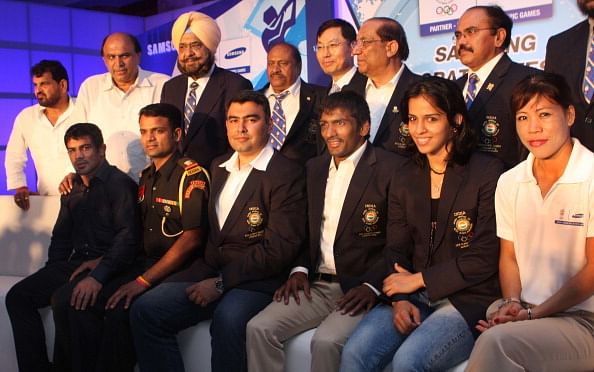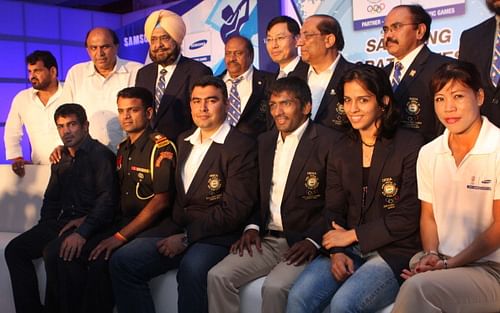
IOA: India’s Ostracized Athletes

“No man is rich enough to buy back his past,” said Oscar Wilde. The Indian Olympic Association (IOA) has, however, ensured that you need to be rich to be able to buy your future. The International Olympic Committee’s (IOC) suspension of the IOA for alleged breaches of the Olympic Code and corrupt election processes has already sent reverberations through the Indian sports world, coming in just two days after the news that India now ranks 96th of 176 nations on a transparency and corruption perception index. What will likely ensue is the current national sport alias, “pass-the-buck”.
This, for some weeks, will make it to dinner-table conversations of the so-called Indian elite only to be replaced by a bigger landmark by another band of politicians in another part of the country. So apart from added revenues for India TV and AajTak, what does this mean?
For starters, it spells curtains for scores of Indian athletes who are in dire need of finances to cover training expenditure, equipment costs and the like. Only “independent participation” will ensure that an already dismal sponsorship scenario of a cricket-crazy nation will now go from bad to worse, given that funding has essentially been reduced from a sport to merely an individual. And it shouldn’t take a Warren Buffet to tell the sponsors that this undiversified portfolio now implies far greater risk of failure and far lesser likelihood of publicity at the Games. As far as the corporate backing is concerned, the detachment of the CSR tag of “helping the budding athletes of the nation for a brighter tomorrow” will find them wanting for reasons to invest.
Given the consumerist era that we live in, it was only a matter of time before money became a prerequisite for success. Like getting into Harvard/IIMs: if your past is shady, they’ll make sure your future isn’t too bright, whilst your present is a mute spectator. Consequently, only HNIs will churn out sportspersons, given that the poorer home-grown athletes will invariably fail to perform in the international arena owing to the dearth of extensive training.
The latter could, of course, be funded expansively provided they first get a medal at the Games; a practice that resembles feeding the cow with the best dessert after it has been overfed with a really shabby meal. Once they’ve proved their mettle at the Games, the media marries their cause by featuring them on magazine covers, regular interviews and TV shows (vis-à-vis MTV Roadies, Sony’s Dus ka Dum). FDs ascertain that the tolerable-to-look-at ones walk the ramps (and hopefully hook up with tinsel-town PYTs to make more news). Bollywood does its bit for sport by making full-fledged biopics on the Mary Koms, while the already well-to-do Nehwals are gifted with BMWs.
Practical obstacles apart, thousands of sportspersons will wake up from the dream of representing their nation at the grandest stage of them all. Winning under the IOC’s banner would be as motivating as the aspiration to make your stepmom proud one day. The only other way out is – as the joke doing the rounds has it – marrying a Pakistani cricketer and changing one’s nationality. As far as the masses go, PT Usha’s LA Olympics’ heroics will continue to be part of Indian folklore owing to the overabundance of regressive attitude for any sport that warrants running without pads on.
One can’t help but think that a major reason why India’s medal tally in 2012 with regards to the ’08 Olympics has increased from three to only six (often quoted, for effect, in relative terms as “doubled”) is that India is a nation of superstars rather than athletes. We like sagas – one sob-story per sportsperson!
Any game in the limelight has to have one and only one icon per era – badminton – Saina Nehwal, wrestling – Sushil Kumar, boxing – Vijender Singh, billiards - Pankaj Advani, chess – Viswanathan Anand. And then that icon is supposed to be the metaphorical “mother-of-the-house”, taking care of everything that concerns the sport and responsible for all the accolades that come its way. Let’s hope that in the case of IOA, more than one culprit gets his due and that timeline for delivery of justice beats the benchmark set by that of Kasab’s.
As the cynics would say, “The IOA did not perform well, so Sachin should retire!”